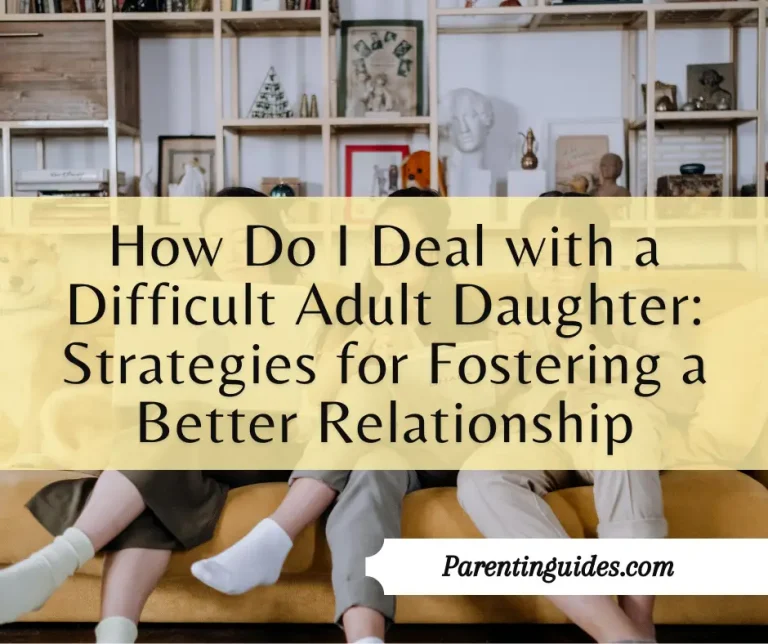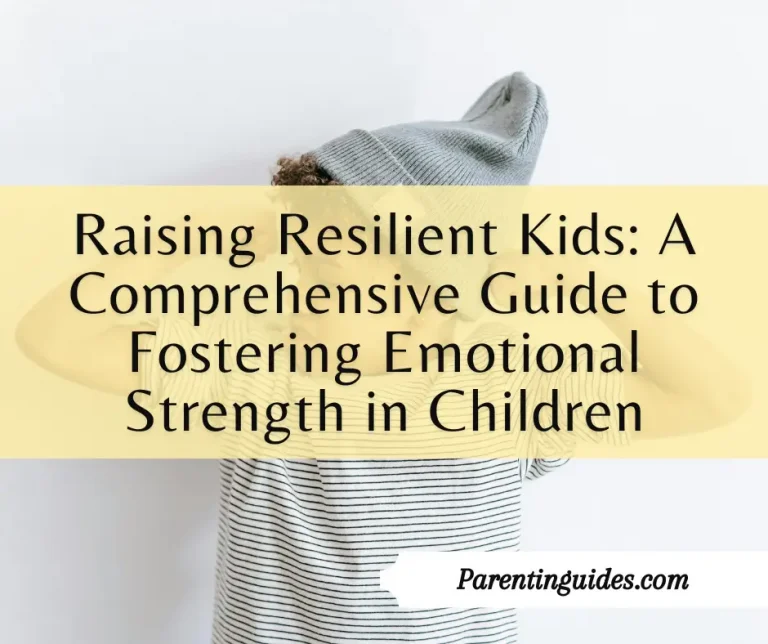As a mother navigating the tricky waters of parenting, I’ve come across many challenges. But one of the most perplexing things has been dealing with the problem of why my child is so arrogant. My husband and I often find ourselves wondering, why my child is so arrogant. This question isn’t unique to us. Simply, many parents grapple with similar concerns. Arrogance in children can manifest as an exaggerated sense of self-importance or a dismissive attitude towards others, which can be distressing.
The impacts of unchecked arrogance are far-reaching. If not addressed, it can affect a child’s ability to form healthy relationships and hinder their emotional growth. Recognizing the signs early and taking action is crucial. In this article, I’ll share practical strategies and insights gleaned from our experiences and professional advice, aimed at helping parents manage and transform this challenging behavioral problem which is “why my child is so arrogant”.
Throughout this discussion, I’ll delve into understanding what fuels arrogance in children, effective communication techniques that my husband and I have tried, and the importance of setting clear boundaries. We’ll also look at educational and social interventions, support systems, and when to seek professional help. All these approaches have one goal. They are simply to guide our children towards a path of empathy, respect, and self-awareness, laying the groundwork for them to become well-rounded individuals. Join us as we explore these strategies together, learning from each other on this journey of parenting. Then, you will get the chance to easily come up with a solution for your problem, “why my child is so arrogant”.
Understanding Arrogance in Children
Defining Arrogance
When I first noticed my child’s overly assertive behavior, I seriously wondered why my child is so arrogant. Then, I struggled to distinguish if this was simply confidence or something more concerning. Arrogance in children is not just about being self-assured; it’s a more troubling pattern of behavior that often involves dismissing others and overestimating one’s capabilities. The signs are quite clear once you know what to look for frequent interruptions, a disregard for others’ feelings, and a refusal to accept feedback. Unlike healthy self-esteem, which is grounded in realistic self-perception and respect for others, arrogance can isolate a child from their peers.
Reflecting on my son’s interactions, I observed that he often claimed to know more than others. Simply, it is even adults who dismiss differing opinions outright. This was not the confidence I hoped to foster. Here, it was arrogance needing redirection. Therefore, when solving the “why my child is so arrogant”, it is essential to clearly understand what arrogance is.
Causes of Arrogance
When thinking about why my child is so arrogant, it is important to understand the causes that may lead to childhood arrogance. In our home, we always aimed to instill confidence. But perhaps our praise was too focused on innate qualities instead of effort. I have learned that parenting styles deeply influence a child’s attitude. Over-praising, particularly without focusing on effort and improvement, can lead children to develop a sense of entitlement rather than a well-rounded self-esteem. It’s a delicate balance that my husband and I strive to achieve by encouraging without inflating.
When it comes to thinking about why my child is so arrogant, social influences play a significant role too. The friends our children choose and the values those peers hold can reinforce or challenge their sense of self and others. Observing my child with his friends, it became apparent that some group dynamics encouraged a competitive rather than collaborative spirit, which exacerbated arrogant behaviors.
Psychological Impact
The psychological impact of arrogance in children can extend far beyond childhood. They can have a direct impact on the problem, “why my child is so arrogant”. In my experience, unchecked arrogance affected our child’s ability to form meaningful relationships. During parent-teacher meetings, it was disheartening to hear that our child’s interactions often bordered on dismissiveness, impacting his social interactions and potential friendships.
The long-term consequences can be significant. Children who continue to behave arrogantly may struggle with loneliness, as their inability to empathize and collaborate hinders genuine connections with others. It was a wake-up call for us to adjust our parenting approach and seek ways to help our child develop more humility and respect for others.
If you are bothered by the problem of why my child is so arrogant, remember that every child’s journey is unique. However, the challenges of parenting a child who shows signs of arrogance are remarkably universal. Reflecting on our experiences, it is clear that addressing this behavior early and with consistent strategies can help steer their developmental path toward a more balanced and fulfilling future.
In sharing our story, I hope that other parents will feel empowered to recognize the signs of childhood arrogance. They will then feel equipped to guide their children towards empathy, respect, and genuine self-confidence. Finally, they will get the chance to solve the problem, “why my child is so arrogant”. Here, it is not just about correcting behavior. Simply, it is about nurturing a child’s heart and mind for their well-being and the well-being of those around them. Remember, addressing arrogance is not just about altering behaviors. Here, it is about shaping a character.

Strategies for Parents to Solve Childhood Arrogance
Communication Techniques
When thinking about why my child is so arrogant, communication is a key to be considered. Talking to my child about his behavior, especially when it tends towards arrogance, requires careful thought. I have found that the key is to engage in active listening. This means hearing what he says without immediately jumping in with corrections or judgments. For instance, when he boasts excessively about school achievement, I let him express his feelings first. Then, I guide the conversation to reflect on the efforts of his peers as well, fostering a sense of communal achievement.
Providing constructive feedback is another vital strategy. Instead of saying, “You’re being too boastful,” I try to frame it positively: “It’s great you did well, but let’s remember how your friends also worked hard and deserve recognition.” This method helps in discussing his behavior without triggering defensiveness. By using these communication techniques, I am learning more about why my child is so arrogant and how to help him grow.
Setting Boundaries and Expectations
Clear rules and consistent discipline are crucial when solving the problem, “why my child is so arrogant”. My husband and I make sure that our son knows what behavior is expected in our home. For example, we have a rule that everyone gets to speak without interruption during dinner time. This encourages respect for others’ opinions.
Consistency is just as important as the rules themselves. Whether it’s a weekday or weekend, the same expectations apply. If rules are broken, the consequences are clear and followed through. This consistency teaches him that rules are not suggestions but standards for everyone’s behavior. It’s challenging but necessary for shaping respectful behavior and addressing why my child is so arrogant at times.
Role Modeling
Every day, my husband and I strive to model the behavior we want to see in our child. Demonstrating humility and respect in our interactions, whether it’s with each other, our children, or outsiders, is a daily practice. When I make a mistake, I admit it openly and apologize if needed. This shows him that everyone, regardless of age or role, can make mistakes and that humility is a strength.
We also make sure to express gratitude and appreciation for each other’s efforts in the household. This visibility of respect and acknowledgment within the family sets a standard for how he should interact with others. By living the values we want to instill, we provide a constant, living example for our son. It’s a genuine effort to correct the underlying issues of why my child is so arrogant, fostering an environment where humility and empathy are valued just as much as personal success.
Through these strategies, we are learning and adapting as parents, and it’s heartening to see gradual changes in our son’s behavior, reminding us that patience and persistence are key in parenting.
Educational and Social Interventions for Childhood Arrogance
School Involvement
Engaging with my child’s school has been crucial in addressing why my child is so arrogant. My husband and I regularly meet with his teachers and counselors to ensure we’re all on the same page. These meetings allow us to understand his school environment better and provide insights into his interactions with peers and teachers. We discuss strategies that can be implemented both at school and at home to support his growth toward humility and empathy.
Participating in extracurricular activities has also been beneficial for him. We encouraged him to join the school drama club and a community sports team. These groups require him to work closely with others, which teaches him about teamwork and humility. It’s been a transformative experience watching him learn to celebrate others’ successes and handle losses gracefully. The shift from being self-centered to team-oriented has been slow but noticeable. These activities are vital as they provide practical experiences that challenge his preconceptions and help mitigate the reasons why my child is so arrogant.
Social Skills Training
To further develop his interpersonal skills, we enrolled him in workshops focused on empathy and respect. These programs, designed for children like him, use interactive activities to teach the importance of understanding and valuing others’ feelings and perspectives. Watching him engage in role-playing exercises that require him to put himself in someone else’s shoes has been eye-opening for him.
Additionally, we encourage him to participate in group activities that promote collaboration. During family gatherings and community events, we set up games and projects that require teamwork. These situations help him practice mutual respect and listening to others, essential skills for reducing arrogance. Each group activity is a step towards understanding why my child is so arrogant and how he can improve.
These social skills training are not just about correcting behavior but about enriching his emotional intelligence. By learning and practicing empathy and respect in varied settings, he’s becoming more aware of the importance of considering others’ views and feelings. It’s a long journey, but every step forward is a victory in transforming his understanding and actions.

Support Systems and Professional Help for Arrogant Children
When to Seek Help
Recognizing when my child’s arrogance could not be addressed by parenting alone was a pivotal moment for us. It became clear when his behavior started affecting his school performance and relationships. My husband and I decided it was time to seek professional help. We consulted a behavioral therapist who specializes in child development. The therapist helped us understand the deeper reasons behind why my child is so arrogant and provided tailored strategies to address these issues.
Behavioral therapists use various techniques that can help children learn how to respond more positively to social cues and criticism. They work closely with the child to understand their thought processes and help them develop healthier thinking patterns. We noticed gradual improvements in our son’s behavior after he started attending sessions.
Similarly, consulting with a child psychologist was invaluable. They offered insights into emotional and psychological factors that might contribute to his arrogance. The psychologist worked with him through sessions that focused on empathy, self-awareness, and respecting others. These interventions are crucial for children whose arrogance may stem from deeper emotional insecurities or developmental issues.
Community and Online Resources
Finding a support system among other parents dealing with similar issues has been incredibly comforting. We joined a few online forums and local parent groups where we share experiences, challenges, and resources. These groups provide a space to learn from others who might have faced similar situations. It’s reassuring to know that we’re not alone in trying to understand why my child is so arrogant and finding ways to help him.
We also found many educational materials and websites dedicated to parenting advice for handling children with behavioral challenges. These resources offer practical tips and activities that we have incorporated into our daily routines. They also feature articles and research that keep us informed about new methods and psychological insights that can assist in our parenting.
Leveraging these community and online resources has empowered us to better support our son and continue our efforts to address his behavior. It’s a journey we’re committed to, with the help of a strong support network and professional guidance, always focusing on what’s best for our child’s development and well-being.
Encouraging Positive Peer Interactions
Understanding Peer Influence
Peer influence is powerful, and I’ve seen how it can sway my child’s behavior, both positively and negatively. Recognizing the role of peer approval in his life has been crucial. When he feels accepted by his peers, his self-esteem soars, but it’s a double-edged sword. Approval can sometimes lead him to act out of character to maintain status or popularity, contributing to why my child is so arrogant at times.
The impact of peer pressure is particularly evident in his need to always appear the best or most knowledgeable. This can lead to dismissive attitudes towards others who challenge his self-proclaimed status. My husband and I are continuously working to help him understand that true self-esteem comes from within and not from external validation. This understanding is crucial for balancing his interactions and fostering a genuine sense of self-worth that isn’t dependent on being better than others.
Fostering Positive Friendships
Guiding my child to choose his friends wisely has been another step in addressing why my child is so arrogant. We talk about the qualities of good friendships, like mutual respect, kindness, and support. I remind him that a true friend will encourage him to be his best self without pushing him to put others down.
Teaching him about these qualities involves discussions about how his actions affect his friendships and vice versa. We also role-play scenarios where he can practice choosing kindness and humility over arrogance. These exercises help him see the value in relationships built on positive traits and not just on superficial qualities.
Parental Involvement in Social Activities
Being actively involved in my child’s social life has helped us steer him towards more positive social interactions. My husband and I make it a point to facilitate activities that promote inclusiveness and empathy. For instance, we organize play dates and small group activities where cooperation is key. This allows him to practice empathy and understand the importance of everyone’s role in a group setting.
We also attend some of these activities to model social behavior and provide gentle guidance when needed. Seeing us interact respectfully and inclusively sets a tangible example for him. These experiences are vital as they help him learn the joys of shared success and the importance of considering others’ feelings, which directly addresses why my child is so arrogant by showing him the bigger picture of social harmony.
Through these efforts, we are nurturing an environment where positive peer interactions are not only encouraged but expected. Each step forward reinforces the values we want to instill, helping to shape him into a respectful and empathetic individual. As a result, parents will get the chance to solve the problem, “why my child is so arrogant”.

Conclusion
Reflecting on our journey as parents grappling with the question of Why my child is so arrogant has been enlightening and humbling. My husband and I have navigated this challenge by applying various strategies, each offering unique insights into shaping behavior and building character. Our experience has taught us the importance of patience, understanding, and consistent effort in addressing childhood arrogance.
We’ve shared our story in hopes of helping other parents who might be asking themselves the problem of why my child is so arrogant. Remember that you are not alone in this journey. The path to helping your child develop empathy, respect, and genuine self-confidence is ongoing and requires a commitment to growth in both yours and your child’s.
Incorporating the strategies discussed from open communication and setting clear boundaries to involving ourselves in educational and social activities. Here, it has gradually helped our child understand the value of humility and respect for others. These efforts have begun to soften his arrogance, making way for a more compassionate and aware individual.
To all parents facing similar struggles, remember, the solution to why my child is so arrogant doesn’t lie in quick fixes but in a persistent, loving approach to guiding our children. Keep striving, keep learning, and most importantly, keep supporting each other. The journey might be challenging. But the outcomes are respectful with well-rounded children that are worth every effort.
We encourage you to seek resources, support groups, and professional advice if needed. Continue this conversation at home, in schools, and within your communities. Together, we can provide our children with the tools they need to grow into empathetic and humble adults. Thank you for joining us in this exploration, and we hope you find the courage and support to address and transform this behavior in your child.









